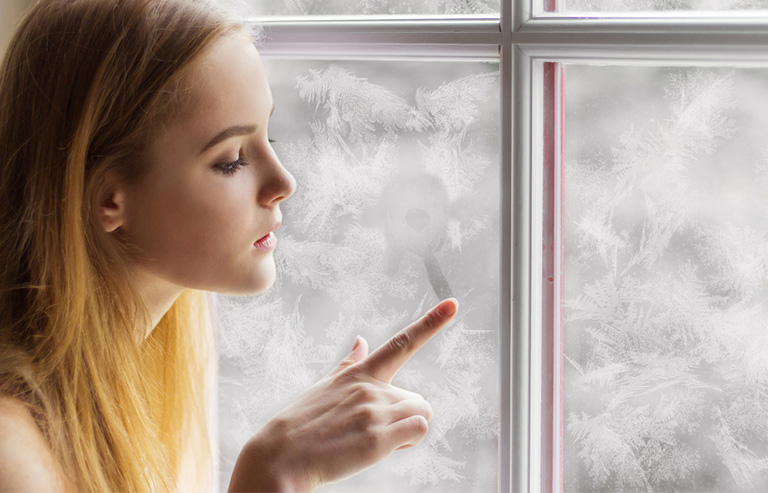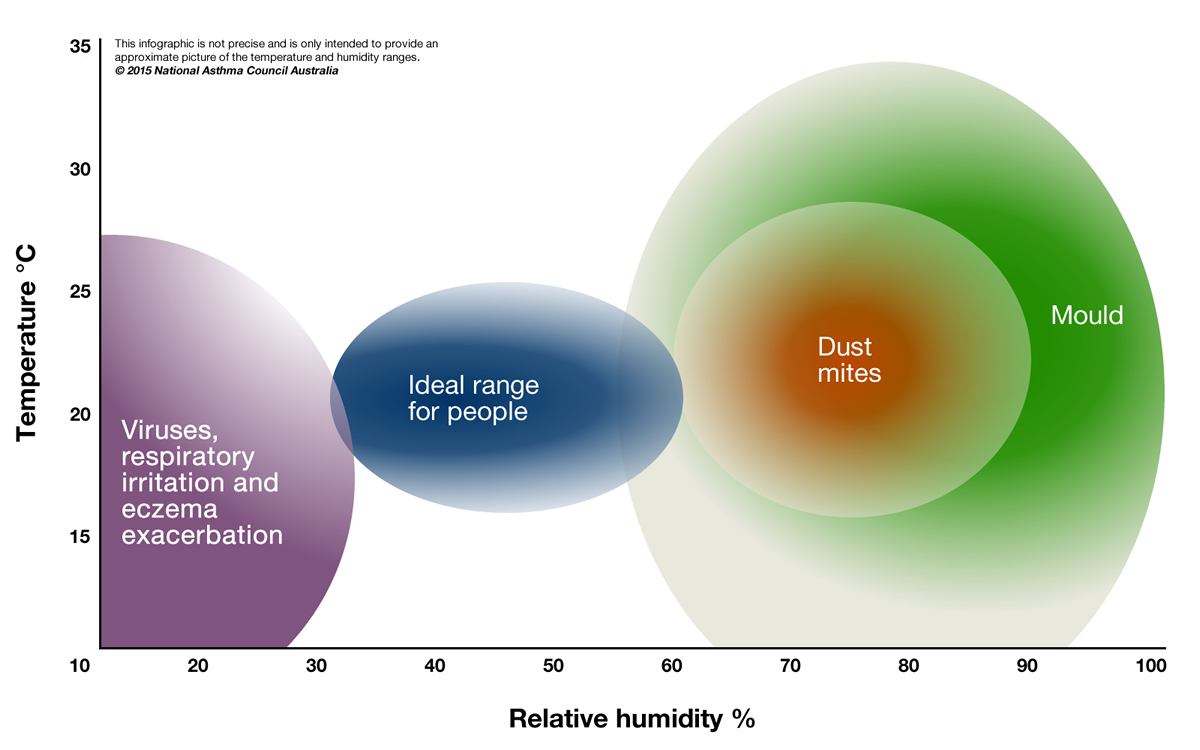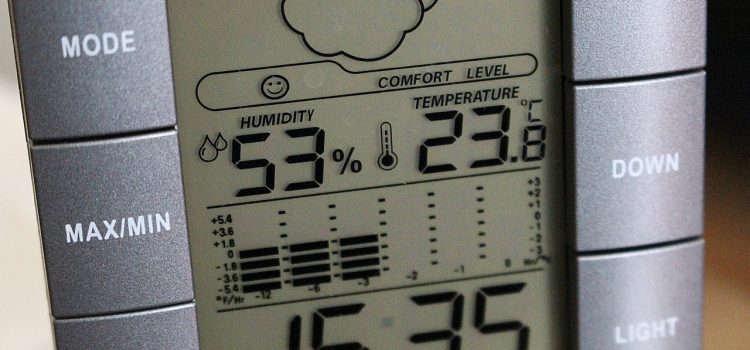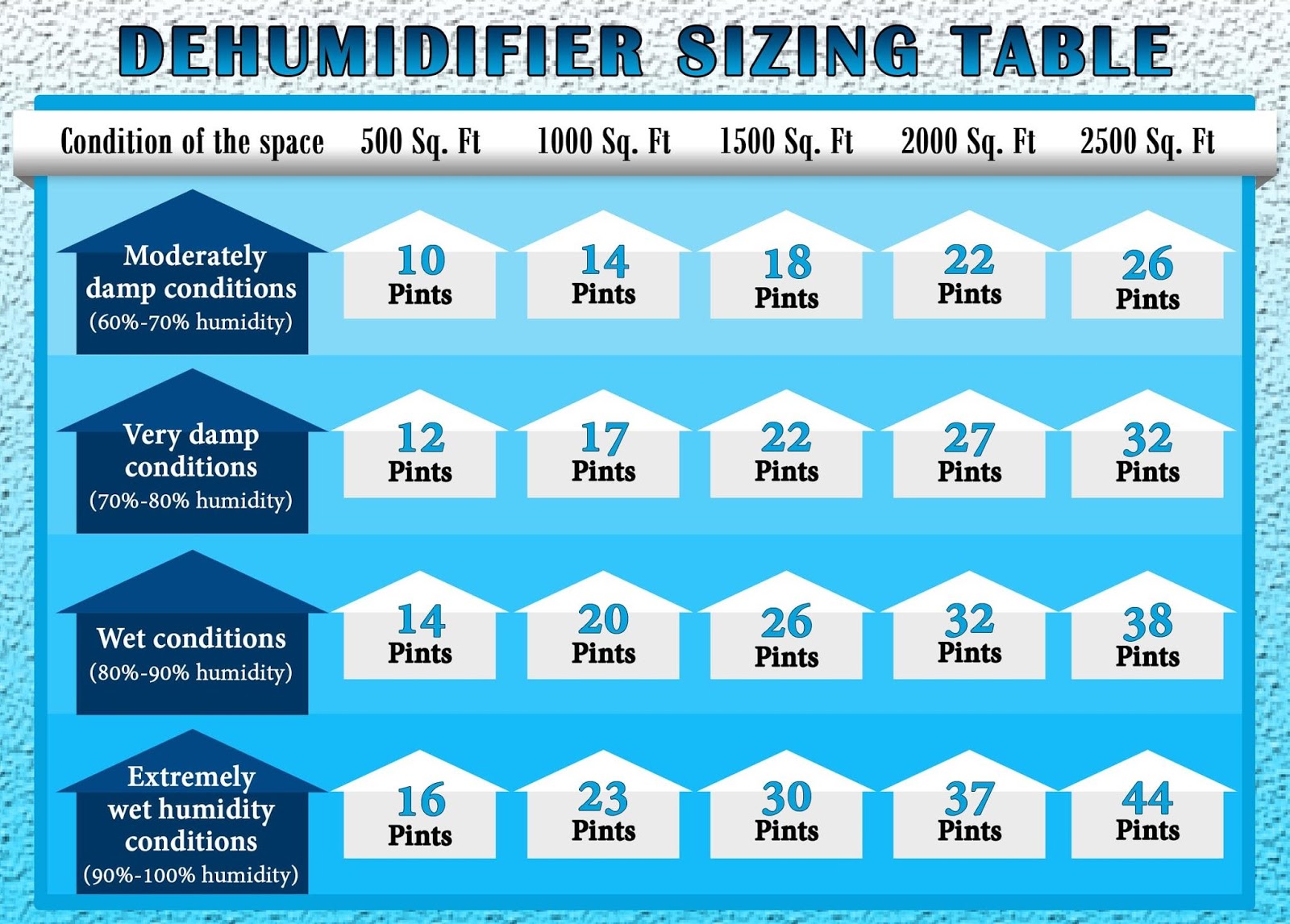Why is My House So Humid: Causes and Prevention

How often have you heard people talking about high humidity just because the weather was too hot? Maybe you too blamed the humidity for all the heat and sweatiness you had to experience. Well, in some cases your statement is valid but in most cases, it is not. There are some misconceptions about this issue that often lead people to search for unnecessary and ineffective solutions. We, here at The Soothing Air, will discuss the very basics of humidity and find out what causes high humidity in a house and most importantly how you can deal with this to have an effective solution.
What Exactly is Humidity?
Humidity is a term that refers the water vapor retaining capability of air in a specific temperature. Well, in simple terms humidity level refers to how much water molecules the air is retaining in a percentage form to the whole air molecules. To put it in real practical terms, you can compare the humidity of air with a towel. A towel has a certain limit on how much water it can carry. The water level in it determines how much wet it is. The air humidity is very much similar. Air has a certain limitation of its water retaining capacity and it varies with the temperature. That is why the humidity is often referred to as relative humidity.
The humidity level is very much dependent on the weather. The moisture retaining capability of air increase with the temperature level. The less the temperature, the less moisture the air can retain. That’s why, in winter the humidity level drops significantly which cause dry skin, dry hair, respiratory problems, and many more other issues. On the other hand, too much humidity can be more uncomfortable. More humidity means your sweat is not evaporating as fast as it normally does. Furthermore, it promotes mold, harmful bacteria, and mites in the environment.
Ideal Humidity for Home

Too much humidity and low humidity, both conditions can be very uncomfortable for human beings. The perfect humidity level varies from person to person. It also depends on clothing, activity level and medical condition of an individual. For most people, the ideal humidity level is between 40% to 60%. Long-term exposure beyond this level of humidity can pose health risks. You can determine the humidity level of your home by simply placing a Humidistat. You can easily buy one in any general electronic store. However, having a humidistat won’t be sufficient enough to control the humidity level of your house. If you are wondering, why is my house so humid, then the best way to control the humidity level in your home is to know what causes humidity and take appropriate actions to prevent that cause.

What Causes High Humidity in A House?
High humidity can occur if the moisture level rises in the house. Moisture can get into the house due to various reasons. Normally Air conditioner system removes the excess humidity from the room. However, your Air conditioning system can cause over humidity which we will discuss very shortly. Here are the reasons for whih1ch, moisture can get into the house:
Daily Activities
Our daily work activities can increase moisture in our home. Cooking, breathing, exercising, taking a shower all of these activities produce moisture. These daily activities can produce a lot of moisture especially if you have a big family. Bringing some small changes in some of the routine works can reduce the excessive moisture level which will we discuss in the latter part of this article.
Damps
Damp in the wall or floor is one of the reasons of over humidity in a house. Sometimes moisture comes from the soil through the floor or wall bricks. You can easily detect damps in your house if there are mold, flaky plaster or wet patches in the wall or floor of your home. You should call in professionals in that case as soon as you can.
The absence of Proper Ventilation
The absence of a proper ventilation system can cause excess humidity in your house. Especially rooms in which moisture is regularly created, like kitchens, laundry rooms requires a proper ventilation system. Otherwise, it can be really uncomfortable to stay there for a long time. This is the same for basements or rooms that don’t have any windows.
Oversized AC
If your air conditioner unit is too big for your room that might be a cause for over humidity. Normally AC helps to dehumidify your room. AC has an evaporator coil which cools down the air. When running, the evaporator coil pulls down the water or moisture from your room. But this dehumidifying process normally takes time. If your AC is oversized to your room, it cools down the room quickly with very short cycles. As a result, the dehumidifying process doesn’t get the necessary time to dehumidify the room. If your AC runs only 10-15 minutes cycle on a hot day, it is probably oversized.
Abundance of Plants
Plants leave moisture in the air. If you have plants in your house, it is wise not to keep them all in the same area. Otherwise, your house can be over humid. Another thing to remember is not to over water the plants. Or this will worsen the problem.
Weather
The main reason for the change in humidity level is the season. To understand this, you have to understand humidity and relative humidity. Relative humidity means the ratio of moisture in the air to the capacity of holding moisture of the air. In the summer, the temperature increases which increase the moisture retaining capacity of the air. So if you are feeling over humid in your house, the change in the weather might be the reason.
How to Remove High Humidity?
High humidity in a house can be very uncomfortable. It feels like sticky and sweaty. It can be really annoying if you have to deal with it consistently. Nobody wants that type of environment in their house. There are many ways to reduce humidity from a house. The best effective way is to use a dehumidifier. There are also other home remedy options for over humidity. We will discuss both options in the following:
Using A Dehumidifier
There are many misconceptions about dehumidifiers. Some of us don’t even know when to use a dehumidifier: winter or summer? Dehumidifier removes the water vapor from the air. In the over humid climate, a dehumidifier can improve the comfort level of a house to a great extent. Dehumidifiers are usually used in the summer when the humidity level rises with the temperature level. However, you can use a dehumidifier in the winter depending on the climate and your preference. Normally you should keep your humidity in between 40% – 60%. But if you use a dehumidifier in winter, you should set your humidity level above 50%.
What Size Dehumidifier Do I Need?
The dehumidifier settings and performance highly depends on the correct size of a dehumidifier. You must determine the appropriate size of your dehumidifier before buying one to get optimal performance. To determine the perfect size you have to identify the humidity level of your room at first. You can easily know it with a humidistat. It is crucial to calculate the dehumidifier CFM (cubic feet per minute). You can use the chart provided below to identify the dehumidifier size or dehumidifier cfm calculator to determine the exact size of your required dehumidifier.

Dehumidifier CFM Calculator
At first, you need to determine the ACH (air changes per hour) to determine the dehumidifier cubic feet per minute. If your humidistat reading shows in between 60% – 70% then the ACH would be 3. If the reading is between 70% – 80% or 80% – 90% or 90% – 100%, then the ACH would be 4, 5 or 6 respectively.
Dehumidifier CFM = ( Room size in square feet * ACH ) / 60
Before buying a dehumidifier you should look up for your cfm requirement. You should buy a dehumidifier which has the required cfm capability or higher. Depending on these you can determine whether you can run the dehumidifier all the time. If your dehumidifier has excess cfm, then you don’t have to operate it all the time.
How to Reduce Humidity Without A Dehumidifier?
Besides using a dehumidifier, you can take the following steps to make your room less humid:
- Keep your windows open. This will allow the air to remove moisture to outside.
- Use fans to increase the airflow.
- Line clothes outdoor. Wet clothes increase the moisture in the room.
- Install a proper ventilation system. Especially for the kitchen, laundry room, and basement.
- Use a proper size AC.
- Repair walls and floors if there is any crack or damps.
- Place a basket of charcoal inside the room. They have high absorbing power.
Using a dehumidifier can enhance the comfort level in your house manifolds. It can relieve you from the sweaty feelings and odor which none wants in their house. Considering the benefits, if you are in a humid climate, investing in a dehumidifier would be a wise choice to maintain the humidity level in your house.
Categorised in: Dehumidifier, Techniques and skills















